Text
Livable Cities
"Walkable neighborhoods allow all of one’s daily needs to be met on foot. They provide a range of mixed uses, all within distances short enough to walk, with streets and paths that are safe, comfortable, and attractive. Experience has shown repeatedly that when places are well designed, residents actually prefer to meet their needs on foot." (Robertson 2014)
I think sprawl contributes negatively to using walking as a plausible form of transportation. Around where we live, if you live in Fort Myers, walking is entirely possible at least to a gas station or Publix. In Cape Coral or North Fort Myers, neighborhoods are much more spread out with stores clustered on main roads. People now can hardly wait 5 minutes for a latte or hamburger, let alone a 45-minute walk to the grocery store or work. I think having walkable paths with access to work or stores could dramatically reduce fossil fuel consumption in this country, as well as reduce stress levels just by being in nature and dealing with less road rage. Relocating people to make room for smart growth is most likely expensive and requires the participation of both people possibly having to move to make room as well as local governments to allow/pay for it to happen.

Source: https://www.fredericknewspost.com/news/education/funding/parents-in-middletown-neighborhood-angered-by-long-walks-for-elementary/article_46030d7c-384c-51d6-8713-2b96aa129a98.html
"Smart growth is an approach to urban planning that is the antithesis of sprawl. It accommodates growth by locating development in city centers and older suburbs with existing infrastructure in ways that preserve open space and natural resources while supporting and revitalizing existing cities. Smart growth developments are compact, walkable, bikable, and transit-oriented, with a mix of uses, housing types, and affordability levels." (Robertson 2014)
It’s almost kind of funny to me how little of the requirements Cape Coral meets “smart growth” development standards. I wouldn’t consider its layout compact by any means; in some neighborhoods, you can walk a half a mile before you get to another house. I also wouldn’t consider it walkable, unless it’s to your friend’s house down the street. Biking might be workable, but if you work in Fort Myers probably not. I can’t speak about its transit situation, but I would argue as that it doesn’t have a “mix of uses”. Finally, its housing types and affordability levels are almost all middle-class, middle-income homes, with a few outliers here and there.
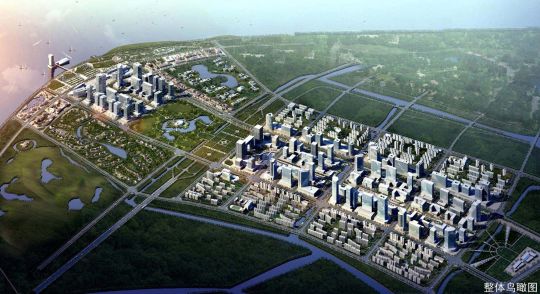
Source: https://www.pinterest.com/pin/410883165978376242/
"Cities will be impacted by changing climate in many ways. Drought, heat waves, changing precipitation patterns, reduced snowmelt, and changes in ecosystem structure will affect cities’ abilities to provision themselves with food." (Robertson 2014)
I absolutely agree with this statement. It’s interesting to me of all the effects climate change can have, the author talks specifically about provisioning of food. As of now, we can keep up with the demand of food relative to our production of it. In fact, we are producing more food than we consume, and we’re subsidizing it. However, with the world’s population growing as rapidly as it is, all it takes is one good dry season or conditions that no longer allow growing outdoors in some states for a massive drop in food supply. This has the potential of causing a shortage of food, and the only way I can think to combat it would be everyone trying to maintain a small garden in their backyard or moving our large grows to greenhouses (which would be expensive).
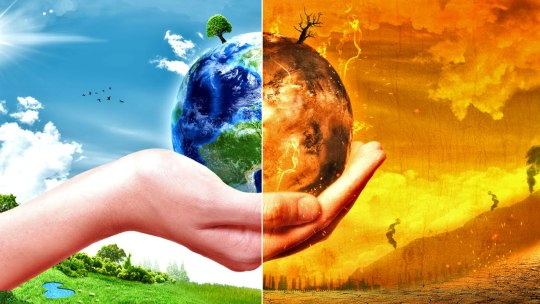
Source: https://www.youtube.com/watch?v=ifrHogDujXw
Sources:
Robertson, M. (2014). Sustainability Principles and Practice. Abingdon, Oxon: Routledge.
0 notes
Text
The Biosphere/The Human Sphere
"For every element used by life there is an intricate and dynamically balanced cycle, ensuring that quantities are always just right and keeping the element circulating through the crust, the atmosphere, the water cycle, and living organisms." (Robertson, 2014)
A natural ecosystem is more intricate than many give them credit for. A simple food chain is pretty obvious and understandable; some animals eat plants and some animals eat other animals. However, there is much more going on behind the scenes. Just the terrain composition and layout affects what life is suitable to live there, and how much. The carbon cycle is a process that involves humans and animals converting oxygen to CO2 and releasing it into the air through respiration. Additionally, humans convert enormous amounts of fossil fuels into CO2 by driving, using electricity, working at factories, etc. Trees and other plants, through photosynthesis, take this carbon dioxide emitted in the atmosphere and use it to grow and convert some of it back into oxygen.
Source: http://bazanet.pl/environment-pictures/
"A functioning ecosystem depends on webs of interactions among all the species of plants, animals, fungi, and microbes together with rocks, soil, water, and climate." (Robertson, 2014)
Another issue many people don’t take into account is how intertwined each individual species in a single ecosystem are. Even if it isn’t immediately clear, every species in an ecosystem is dependent on each other. Herbivores are dependent on the plants to get their sustenance; plants are dependent on insects to pollenate; birds are dependent on trees for a place to call home; predators are even necessary to keep the population of certain species in an ecosystem in check. Without any one of these members, the balance of an ecosystem can get thrown off. Again, this is something many fail to realize – and then continue to overharvest, over poach, deforest, and pollute. You don’t have to be against hunting or industrialization to understand that humans have an impact on the environment, and that we should be conscious of the decisions we make and the consequences that might entail.
Source: http://www.noaa.gov/resource-collections/coral-ecosystems
"Making Technology choices to minimize environmental impact is a focus of work in renewable energy, building and site design, product design, and industrial ecology." (Robertson, 2014)
The path to becoming sustainable in the future is one that will require cooperation from many fields. There have already been many green-friendly inventions and innovations in the recent years (solar and wind power, electric and hybrid cars, just to name a few), but this is just the beginning. Layouts of cities and roadways are never built with optimization or sustainability in mind; they are built gradually as the need for different buildings or services grow. Many businesses don’t opt to go the environmental route, as often times they are time-consuming or require different training or machinery, and at the end of the day, a business is there to make a profit. Even with all of the improvements “going green” we’ve made lately, we need to continue to make progress, and if politics allow, I believe we will eventually get to a point where an entirely sustainable future is possible.
Source: http://www.realgreengoods.com/the-ins-and-outs-of-green-energy/
Sources:
Robertson, M. (2014). Sustainability Principles and Practice. Abingdon, Oxon: Routledge.
0 notes
Text
Shiva Biodiversity
"Human beings are clearly highly ignorant of other members of the Earth Family and, at least in the Western worldview, have thought of themselves as sitting on top of a biodiversity pyramid or tree rather than forming a part of a complex web of life." (Shiva 2011)
Many of us make seemingly inconsequential decisions on a daily basis that have an effect on Earth’s biodiversity. Be it ignorance or otherwise, throwing a piece of litter on the ground can have a larger impact on an individual plant or animal than it may seem. We tell ourselves, “Oh, it’s just one bottle” or, “Oh, it’s only a wrapper”. But the truth is, on a scale of hundreds of millions of people, it can have a huge impact over time. Recycling, pollution, industrialization, and a variety of other factors affect the biodiversity of nature. One individual’s indifference for Earth is harmful enough; companies can take it to a whole new extreme. We’ve become an entitled species, and we need to change that mindset and look at ourselves as part of an Earth Family.
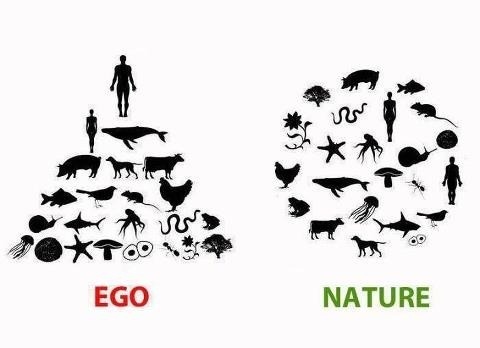
Source: https://www.pinterest.com/pin/206532332884002039/
"Biodiversity is not just a conservation issue, it is an issue affecting economic survival. Biodiversity is the means of likelihood and the ‘means of production’ of the poor who have no access to other assets or means of production." (Shiva 2011)
Reducing biodiversity can have unforeseen consequences. The world’s population is reliant on a variety of Earth’s natural resources. We farm crops for food, fibers, and medicines; we raise livestock for foods, fabrics, and other materials; we mine for coal, drill for oil, and frack for natural gasses. If any one of these things ceased to exist, it would have a major impact on lives all around the world. Furthermore, it could cause a domino effect. A species going extinct could cause another natural predator to go extinct, which in turn could cause the poaching of that animal to stop, which could cause a village to lose their entire production, and in turn economy. Biodiversity isn’t just a term the left has created to brainwash or scare people – it is absolutely necessary to maintain a sustainable future.

Source: http://catholicphilly.com/2016/11/news/national-news/pope-prioritizes-need-for-an-economy-that-includes-poor-archbishop-says/
"The idea of emptiness also leads to the notion of limitlessness–that there are no limits set by nature or other cultures to be respected, no ecological or ethical limits, no limits to the level of greed or accumulation." (Shiva 2011)
While we gather and harvest all sorts of natural resources, we must keep in mind a few things. Firstly, the Earth is not indestructible. Everything has a limit, and nothing lasts forever. Earth is no different; we must not take it for granted, and realize that it is possible for us to damage our home. Secondly, we need to have morals. Because there is no black and white definition of right and wrong in the natural world, we must create our own. Just because one company is destroying a habitat or biome, does it make it right for every company afterwards to do the same? Finally, we should think about what is necessary. Overharvesting is a very real issue, and so is greed. Moderation is key – we can use what has been given to us, but we must have respect for the natural world if preservation and sustainability are on our list of things to do.

Source: https://www.pinterest.com/pin/292945150739049697/
Sources:
Shiva, Vandana (2011). University Colloquium: A Sustainable Future. Acton, MA: XanEdu Publishing, Inc.
0 notes
Text
Leopold A Land Ethic
"In short, a land ethic changes the role of Homo sapiens from conqueror of the land-community to plain member and citizen of it. It implies respect for his fellow-members, and also respect for the community as such." (Leopold 2011)
As a whole, the human race must respect all forms of life in the ecosystem. We have become a very dominant species, using and influencing resources and the land around us. We must learn to respect the environment, or we will end up losing things we love or rely on. Excessive drilling, fracking, etc. can cause serious damage to ecosystems. There is a very real possibility that we will eventually consume natural resources faster than we can create them. Who are we to determine whether or not to deforest an entire habitat? Moreover, what if enough of our “conquering” causes extinction? Unless we learn not to take the land for granted, it will eventually lead to our downfall. We must respect it, and treat it – and everything that lives inside it – as a community.
Source: http://www.freegreatpicture.com/man-and-nature/man-and-nature-621
"Man’s invention of tools has enabled him to make changes of unprecedented violence, rapidity, and scope." (Leopold 2011)
In this quote, the author states (rather bluntly) that humans, as a whole, have caused irreparable damage to the land through the use of our inventions. In the text before the quote, the “Pyramid of Life” is explained. Essentially, all life in a certain area is connected and reliant on each other to operate. Changes happen pretty commonly in environments, and evolution is a reaction to those changes. However, these natural changes are slow and local. What humans manage to do are of a different order, and the effects (intentional or otherwise) can go unnoticed or cause change magnitudes larger than the land can handle. Because of this, we must be aware of the consequences of our actions, and as a whole, it will eventually be inevitable that we must change the way we think about the environment, and most likely the way we live, as well.
Source: https://www.flickr.com/photos/spiraldelight/8410452407
"An innumerable host of actions and attitudes, comprising perhaps the bulk of all land relations, is determined by the land-users’ tastes and predilections, rather than by his purse." (Leopold 2011)
I think what the author is getting at here is we have an impact on the land we live on through our wants and needs. Throwing money at a problem doesn’t necessarily solve it. A lot of times people don’t mind mining for coal or diamonds, or drilling for oil, or building a new highway. In addition, we all need housing, work at offices, shop at supermarkets, go to schools, travel at airports – these all accommodate our “needs” and the land around us is shaped accordingly. We could throw an endless amount of money at trying to reverse some of the damage we’ve done or pollution we’ve caused, but until our “tastes and predilections” change, some things will remain irreversible.
Source: http://thebreakthrough.org/index.php/journal/past-issues/issue-2/the-rise-and-fall-of-ecological-economics
Sources:
Leopold, Aldo (2011). University Colloquium: A Sustainable Future. Acton, MA: XanEdu Publishing, Inc.
0 notes
Text
Louv Nature Deficit Disorder
"Studies suggest that nature may be useful as a therapy for Attention Deficit Hyperactivity Disorder (ADHD), used with or, when appropriate, even replacing medications or behavioral therapies." (Louv 2011)
The reading suggests that the cause of ADHD is not spending enough time in nature. Each hour that a preschooler spends watching television per day increases the likelihood of developing concentration problems or other symptoms by 10%. ADHD is still a new condition that seems to be a growing problem. This didn’t seem to be as large of a problem even 10 or 20 years ago (or at least it went unnoticed). One could theorize that given the popularity and over-abundance of smartphones, smart TVs, tablets, computers/laptops, etc. over the last 10-20 years, there is a correlation between ADHD and hours spent staring at our gadgets. Thankfully, the author recommends spending time in nature not only as a preventative measure, but a treatment (and possible cure) to ADHD, as well. As entertaining as Netflix is or as ego-boosting as Facebook or Tumblr is, the time spent admiring nature really is immeasurable.

Source: http://www.medicaldaily.com/generic-pill-size-and-shape-could-determine-whether-patient-will-adhere-medication-regimen-292958
"And, as Kuo points out, prescribing "green time" for the treatment of ADHD has other advantages: it's widely accessible, free of side effects, nonstigmatizing, and inexpensive." (Louv 2011)
In the modern age, we prescribe a pill to fix everything. If you’re depressed, if your back aches, if you can’t concentrate, if you can’t sleep, if you have high blood pressure, if you have anxiety – it’s all remedied by taking a little colored pill. Some of these symptoms are bad enough to justify prescribing something; however, it’s my own personal belief that doctors are too quick to recommend taking a pill to fix a patient’s problem. In many cases, the side effects of the prescription can be just as bad, or worse, than the condition attempting to be treated. Because of this, a lot of homeopathic and alternative treatments are popping up. If, as the author suggests, spending time in nature can treat ADHD, it could be a less addictive, money saving, more natural solution to a common problem.

Source: https://www.dreamstime.com/stock-photography-go-vector-green-button-image10076482
"Anyone who has spent much time around addicts or gang members understands how disarming – and manipulative – they can be. Yet on this afternoon, I saw no evidence of the con artist in their eyes. At least for a while – a day, a week, a year, or perhaps even a lifetime – they were changed." (Louv 2011)
In Ketchikan, Alaska, some alternative forms of punishments were being used for at-risk students. It was an attempt to expose them to nature and hopefully change their behavior. Some of the students had only been in urban environments their whole life, so seeing bears and berries in the wild were new experiences for them. One girl said, “I never saw a bear before. I’m scared of bears, but when I saw them, I had no stress. I was calm, free. You know what was great? Picking berries. It was addictive. Like cigarettes.” In America, our institutions often have repeat offenders. In some countries, there are less repeat offenders because of some of the techniques they use on their inmates. This is often alternative punishments; instead of punishing someone for being bad, show them the way to be good, and reward good behavior. I believe this is the correct way of dealing with offenders, and because of that, I support what one Ketchikan judge did.
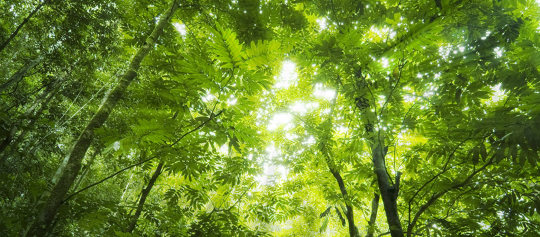
Source: http://www.purmo.com/au/quality/environment.htm
Sources:
Louv, Richard (2011). University Colloquium: A Sustainable Future. Acton, MA: XanEdu Publishing, Inc.
0 notes
Text
Orr Biophilia
"The manifestation of biophobia, explicit in the urge to control nature, has led to a world in which it is becoming easier to be biophobic. Undefiled nature is being replaced by a defiled nature of landfills, junkyards, strip mines, clear-cuts, blighted cities, six-lane freeways, suburban sprawl, polluted rivers, and superfund sites, all of which deserve our phobias." (Orr 2011)
In an age of technology, it is to become desensitized and ignore the little things. Removal of forests and fields, destruction of lakes and mountaintops, addition of trash and man-made structures; these are all things that most people don’t think twice about. The building of highways and houses may be necessary to some extent, but ever since the Industrial Revolution, the population has been rapidly on the rise. Mines, landfills, highways, cell towers, and skyscrapers have all been constructed to meet society’s “needs”. There might not be an inherit problem with building these things, but many don’t want to admit there might be a problem with building them in excess. The more impact we have as a population, the less green the Earth becomes. We should really ask ourselves: should we have a phobia of nature or man?
Source: http://afkinsider.com/133208/u-s-based-construction-firm-opic-to-help-build-a-six-lane-highway-in-kenya/
"A sane civilization that loved more fully and intelligently would have more parks and fewer shopping malls; more small farms and fewer agri-businesses; more prosperous small towns and smaller cities; more solar collectors and fewer strip mines; more bicycle trails and fewer freeways; more trains and fewer cars; more celebration and less hurry; more property owners and fewer millionaires and billionaires; more readers and fewer television watchers; more shopkeepers and fewer multinational corporations; more teachers and fewer lawyers; more wilderness and fewer landfills; more wild animals and fewer pets." (Orr 2011)
More progressive-minded individuals are open to the idea of changing their lifestyle if it would benefit the Earth. However, it takes more than just a handful of people to have a real impact. Society as a whole must reevaluate the way its infrastructure works and the way we all individually live our lives. In America, the industrial way of living is so deep-rooted that it isn’t something that will just change overnight. It’s almost expected of people to own a car, buy a house, and shop at malls. It may be frowned upon at the moment, and it would certainly take a lot of time to adjust, but why can’t we consider the idea of riding a bicycle to work, in a shared family home, while shopping at a local market? This obviously doesn’t prevent additional harm done to the environment, but it is a step in the right direction by applying harm reduction.
Source: http://www.cnn.com/2012/04/26/us/la-trash-puente-landfill/
"Children are rushed into adulthood too soon, only to become childish adults unprepared for parenthood, and the cycle repeats itself. We will not enter this new kingdom of sustainability until we allow our children the kind of childhood in which biophilia can put down roots." (Orr 2011)
While technology greatly improves our lives, it is vital to understand the importance of nature. Kids (and adults alike) are glued to their smartphones nowadays, it makes it easy to overlook things that are happening right in front of us. Instead of focusing our efforts on the latest mobile game or reading news feeds on Facebook, we should be pushing for growth and interest in bio-friendly jobs and using technology to our advantage to take a step in the right direction of sustainability. Like I said earlier, this is a mindset and lifestyle change that will take some time to implement, as well as get used to. But what most people don’t consider is: without a sustainable economy, where do they think the newest iPhone is going to come from?
Source: http://www.borgenmagazine.com/deforestation-new-threat-global-food-security/
Sources:
Orr, David W. (2011). University Colloquium: A Sustainable Future. Acton, MA: XanEdu Publishing, Inc.
0 notes
Text
What Is Sustainability/History of Sustainability
"Our world is now understood to be planetary in scale, to be changing very fast, and to be situated either at the threshold of a planetary disaster of unprecedented magnitude or at the beginning of a sustainable new era. Whatever the outcome, the new state of the world will not be like it is today." (Robertson 2014)
Something that many people have come to realize over the last few years is that the planet we call our home is not indestructible. By fracking, mining, and deforesting, we make an impact (a lot of times negative). Earth is very resilient, so sometimes these causes and effects can go temporarily unnoticed; however, as time goes by and the scale of these activities increase, something’s got to give. Gathering of resources isn’t inherently bad (and in some cases, it is necessary), but overharvesting and not thinking of potential outcomes for the future is. If the state of the world is inevitably going to change, we should be focusing our efforts to make sure the future is as bright as the present. One way of supporting this is by making efforts to shift our economy to become entirely sustainable.

Source: http://www.doomsdaymoose.com/2013_06_01_archive.html#.WH4wexsrLZs
"We must see our own species as neither victims nor masters but as active members of the interconnected webs of all living beings. We need to learn to live within our means ecologically, to recognize that there are built-in limits to any system known as its carrying capacity" (Robertson 2014)
For so long, we have viewed our impact on the world as inconsequential. Many still believe this, but as disasters occur and climates change, some are often convinced to change their views. Natural resources won’t last forever and mother nature can only take so much before certain limits are reached. It is entirely possible to live self-sustainable, but the way we are living in the present is not. Taking steps to “go green” is a great start to becoming a sustainable culture, but they are more of a harm reduction than a harm prevention. In order to stop destroying ecosystems and stop being so reliant on non-renewable resources, we need to change the way we live as a culture. We all have an impact, and we all share our home we call Earth.

Source: http://www.boredpanda.com/spring-5/
"In general, Western culture has maintained a belief that economic growth and ever-improving standards of living can continue forever. However, a few influential books that suggested that some human activities might not be sustainable began to appear in the last 200 years or so." (Robertson 2014)
A large portion of people in Western culture perceive success in material things. Expensive food, fast cars, small, shiny objects around your neck and wrist – these symbolize how well-off one is. Many people in the culture strive to attain these things one day, in hopes of becoming happier and wanting others to perceive them as a higher class than they might perceive themselves. There is nothing intrinsically wrong with wanting to better yourself or your possessions. However, there merely aren’t enough resources in the world to keep up with the ever-growing demand of precious metals and non-renewable resources, with technology becoming as high-tech as it is today and the population of the world constantly rising. At some point, the world’s views on “wants” versus “needs” will have to change.
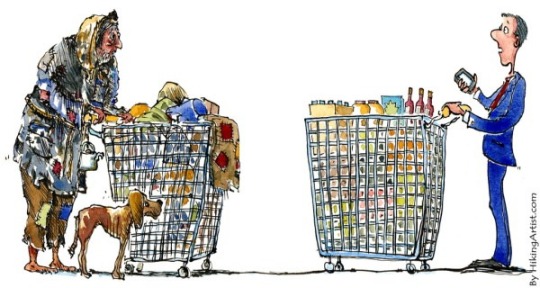
Source: http://hudsonvalleynewsnetwork.com/2015/01/12/u-s-standard-living-index-climbs-highest-7-years/
Sources:
Robertson, M. (2014). Sustainability Principles and Practice. Abingdon, Oxon: Routledge.
0 notes